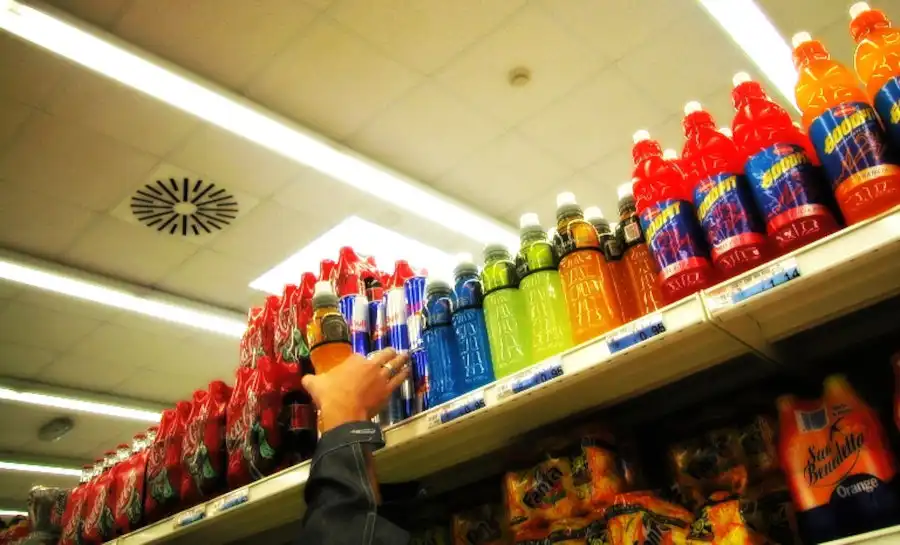Shoplifting & Theft Defense in California – Protecting Your Rights in the Bay Area
Facing shoplifting or theft charges in Northern California? The laws have changed dramatically in 2025. What was once a misdemeanor may now be charged as a felony under Proposition 36. Contact our experienced Bay Area criminal defense attorneys immediately at +1 (800) 379-9330 for a confidential, free case review.
If you are facing shoplifting or theft charges in Northern California, the experienced Bay Area criminal defense attorneys at Ginny Walia Law Offices are here to help. Whether you've been accused of retail theft in San Francisco, Alameda, Contra Costa, Solano or Sonoma County, our team knows how to defend against the evolving laws in California.
Understanding Theft Crimes in California
Under California law, theft crimes broadly fall into three categories: petty theft, grand theft, and retail/organized retail theft. These offenses carry serious consequences—including misdemeanor jail time, felony prison time, steep fines, restitution, plus collateral consequences like employment hurdles and immigration risks. Theft charges may also overlap with other property crimes such as burglary, robbery, and vandalism.
Petty Theft (General Theft)
The crime of petty theft is covered under Proposition 47 and related statutes. Historically, theft of property valued at $950 or less from a store or other premises qualified as a misdemeanor under Proposition 47.
Under Penal Code § 459.5 PC (shoplifting), a person enters a commercial establishment during business hours with intent to steal merchandise valued at $950 or less. Typical penalties under PC 459.5 for a first offense include up to 6 months in county jail and a fine up to $1,000.
Grand Theft & Escalated Charges
If the value of stolen property exceeds $950, or other aggravating factors are present, the crime may be charged as grand theft under Penal Code § 487 PC, which can be either a wobbler (misdemeanor or felony) or felony depending on the circumstances.
Furthermore, the state of California has recently passed major changes to theft law for 2025 that may result in what were formerly misdemeanors now being charged as felonies.
2025 Legislative Changes: Effective January 1, 2025, several key legislative changes make theft offenses more serious, including expanded arrest powers, felony charges for repeat offenders under Proposition 36, and new retail crime restraining orders.
Organized Retail Theft & Repeat Offender Provisions
Effective January 1, 2025, several key legislative changes make theft offenses more serious:
- Assembly Bill 2943 expands law enforcement's ability to arrest for shoplifting even when the theft was not witnessed by the officer.
- AB 2943 also allows prosecutors to aggregate multiple thefts across stores/locations to charge as grand theft.
- Proposition 36 (2024) enables certain repeat shoplifting offenses (two or more prior theft convictions) to be charged as felonies—meaning even thefts valued at $950 or less can result in prison.
- Retail crime restraining orders (under Assembly Bill 3209) let courts bar convicted shoplifters from entering certain premises for up to two years.
Facing theft charges under the new 2025 laws? Our experienced Bay Area defense team understands the latest legislative changes and can build a strong defense strategy to protect your rights.
Why Hiring a Bay Area Theft Defense Lawyer Matters
If you are looking for a "shoplifting defense attorney near me" or "Bay Area theft lawyer", here's why time is of the essence:
- Local knowledge: Understanding how Alameda, Contra Costa, and Solano County prosecutors handle retail theft matters—and negotiating strategies that may keep charges lower (e.g., diversion, misdemeanor rather than felony).
- Updates to law: With new statutes in effect for 2025, what used to be a misdemeanor might now trigger a felony. Our firm stays on top of these changes so you don't face unexpected terms.
- Record preservation: A theft conviction (especially a felony) creates long-term issues with employment, licensing, immigration, and civil recovery by merchants.
- Aggressive defense strategy: We examine all aspects including whether proper intent was proven, whether the value threshold was met, whether the business entry requirement was satisfied, and whether prosecutorial discretion or diversion is available.
What Happens After a Theft Arrest in California?
- Arrest or citation – You may be cited or booked depending on value, prior record, business policy, and whether the theft was observed.
- Bail or release – For misdemeanors, you might be released on your own recognizance; felonies often require bail setting.
- Charged/arraignment – The prosecutor files charges (petty theft, grand theft, PC 459.5 shoplifting, or specialized retail theft) and you appear in court.
- Plea negotiations / motions – A defense lawyer can negotiate reduced charges, seek dismissal, request diversion, or file pre-trial motions.
- Trial or plea deal – If no deal is reached you may proceed to trial. The prosecutor must prove beyond a reasonable doubt each element of the offense (intent to steal, value, entry into business, etc.).
- Sentencing / probation – If convicted, penalties vary: misdemeanors up to 6 months in jail, felonies up to 3 years (or more under enhanced statutes) plus fines, restitution, and ancillary penalties.
- Collateral consequences – Conviction may result in difficulty securing employment, professional licensing, increased jail risk if violation of probation, and special consequences if you are a non-citizen.
Our firm defends professionals, students, workers, and people with immigration concerns. We understand the collateral consequences of theft convictions and work to minimize their impact on your future.
Consequences of Theft Charges in California
- Jail or prison time: Misdemeanor shoplifting: up to 6 months. Felony theft: up to 3 years (or more for repeat or organized offenses).
- Fines and restitution: Fines up to $1,000 (misdemeanor) and restitution required for the value of theft plus damage or loss to merchant.
- Probation enhancements: Some new laws double permissible probation for shoplifting to two years.
- Retail crime restraining orders: Defendant may be ordered to stay away from a retailer or its premises for up to two years.
- Felony exposure for repeat offenders: With Proposition 36, two prior theft convictions can elevate a theft of $950 or less into a felony.
- Civil exposure: Businesses may pursue civil recovery under PC 490.5(b)–(c) against shoplifters.
Important: A theft conviction—especially a felony—can severely affect future employment, professional licensing (teachers, healthcare workers, financial advisors), housing applications, and immigration status. Non-citizens may face additional immigration consequences including deportation.
Unique Bay Area Considerations
- Counties like Alameda, Contra Costa and Solano may offer diversion programs for first-time offenders in theft cases—your lawyer will assess eligibility.
- If you are charged in the Bay Area and live elsewhere (or vice-versa), it matters for venue, local rules, and whether a plea affects other jurisdictions.
- Bay Area businesses are vigilant about theft; cooperating stores may push for prosecution rather than diversion. Having an attorney negotiating early can make a difference.
- If you are employed in a regulated profession (e.g., healthcare, education, security) in California, a theft conviction may trigger mandatory reporting to licensing boards.
Defense Strategies We Use
- Challenging intent: Proving the prosecution cannot establish intent to permanently deprive the owner of property.
- Value disputes: Challenging the claimed value of stolen property—if under $950, may be misdemeanor not felony.
- Entry requirement: For PC 459.5 shoplifting, challenging whether defendant actually "entered" a commercial establishment during business hours.
- Prior conviction challenges: Under Proposition 36, examining whether prior convictions qualify and whether they can be challenged or reduced.
- Diversion programs: Negotiating for first-offender diversion, deferred entry of judgment, or alternative sentencing to avoid conviction.
- Suppression of evidence: Filing motions to suppress illegally obtained evidence or statements.
- Civil compromise: Negotiating with the victim/business for restitution in exchange for dismissal of charges.
Why You Should Act Immediately: Facing theft or shoplifting charges in California means you're up against laws that are evolving and penalties that can increase rapidly, especially for repeat offenders. The sooner you engage skilled legal representation, the greater the chance you'll avoid a felony conviction or significant jail time—and protect your future livelihood, reputation and freedom.
Types of Theft Cases We Defend
- Shoplifting (PC 459.5) - entering commercial establishment to steal $950 or less (can escalate to robbery if force is used)
- Petty theft - theft of property valued at $950 or less
- Grand theft (PC 487) - theft of property exceeding $950
- Organized retail theft - multiple thefts across locations
- Repeat offender theft charges under Proposition 36
- Employee theft and embezzlement (see our white collar crime page)
- Theft from person (pickpocketing)
- Auto theft and vehicle-related theft
- Identity theft and fraud-related theft
- Receiving stolen property
Localized Representation Across the Bay Area
Looking for a "shoplifting lawyer near me" or "Bay Area theft defense attorney"? Our firm defends PC 459.5 shoplifting, petty theft, grand theft (PC 487), organized retail theft, and repeat offender charges under Proposition 36 across:
- San Francisco
- Oakland, Berkeley, Hayward, Fremont (Alameda County)
- Walnut Creek, Martinez, Concord, Richmond (Contra Costa County)
- San José, Santa Clara, Palo Alto, Sunnyvale (Santa Clara County)
- Redwood City, San Mateo, Daly City (San Mateo County)
- Fairfield, Vallejo (Solano County)
- Santa Rosa (Sonoma County)
- San Rafael (Marin County)



